Nick Totton's PageHelping people remember who they are and what they're doing here
Nick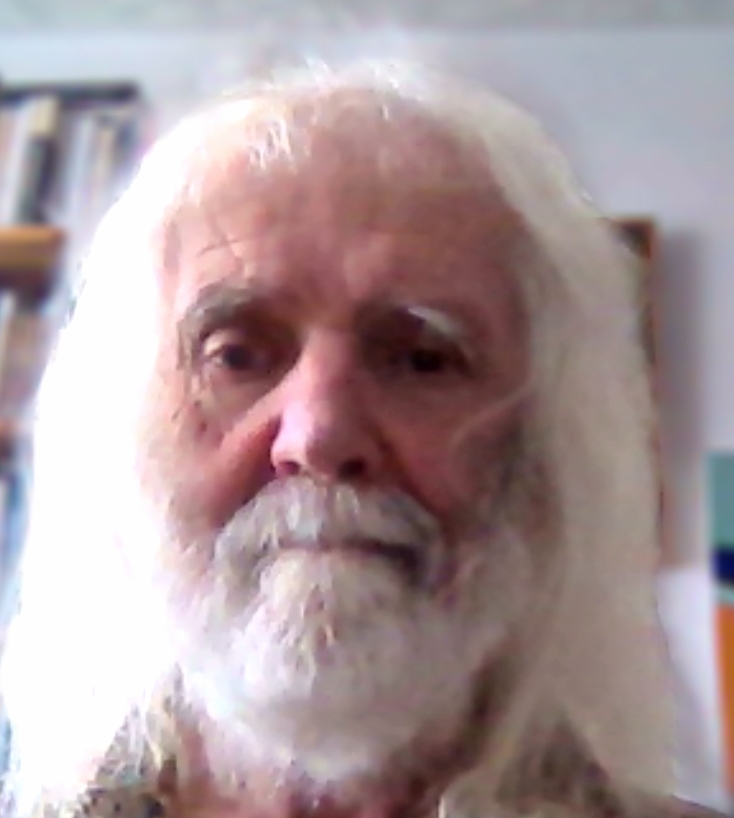
|
I have been working as
a therapist, supervisor, trainer and workshop leader since
1981, having trained originally as a Reichian
bodywork therapist. (You can find out something
about Reichian therapy and its founder Wilhelm
Reich by going here.)
Since then I have completed an MA in
Psychoanalytic Studies; trained (but don't practice) as a cranio-sacral therapist; attended a number of
seminars in Process
Oriented Psychology;
and developed my own integrative approach to psychotherapy. I offer
workshops and seminars on a range of themes, including embodiment,
ecopsychology, and the politics of psychotherapy; and am the founder
of, though no longer a trainer for,
Embodied-Relational
Therapy, as well as being the founder of the Wild Therapy project, 'bringing therapy into the wild, and wildness into therapy'. I recently moved from Cornwall to Sheffield.
|
My work as a therapist |
I identify myself as a body psychotherapist,
but it's not really a very satisfactory term: it sounds as though I
only work with people's bodies, whereas of course I work with the whole
of them, united bodymindspirit. My goal is to follow the client
wherever their process takes them; but a central concern is the nature
of the embodied relationship which the two of us can grow together, and
how this reflects the themes and issues of the client's life.
Following someone's spontaneous process can
end up in some unusual places; but often the session will be spent
sitting and talking together, in the way that most people expect. Other
possibilities include (by mutual agreement) working with breath; with
visualisation and fantasy; movement; and working out of doors.
I
have recently closed my practice with individual clients or
supervisees,
although I will still offer one-off or occasional consultations; I also
lead several monthly online supervision groups, which my occasionally
have a vacancy. My partner,
Helene
Fletcher, is also a body psychotherapist, and you can see her web
page here.
You can email me here.
| | Workshops and Courses |
I don't work as much as I used to, but I do run occasional workshops and courses; to go on my mailing list for these, contact me. For the training in Embodied-Relational Therapy, go here; and for the Wild Therapy one year training and taster workshops go here.
|
Recent Books | | Different Bodies:
Deconstructing Normality
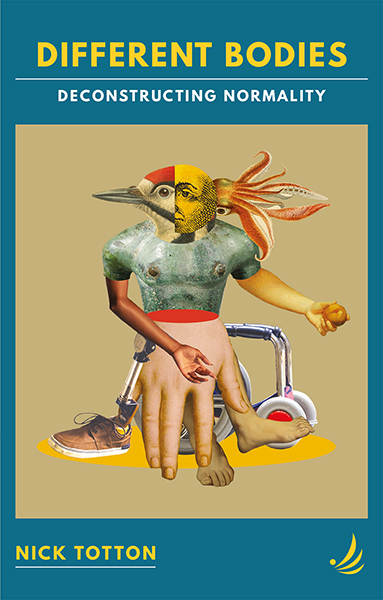 |
The aim of this book is to challenge the reader –
talking therapist, body therapist, client or anyone else – to
interrogate their own sense of ‘normality’ and relinquish the
term and all the privileges it brings. It is time, he writes, ‘to
dismantle that identity, pull down that statue… and rest on the
solid ground of difference’. Only then, he argues, will
psychotherapy practitioners be in a position to learn from their
clients and their different bodies how best to work with them.
The
book addresses differences of bodily capacity, gender and sexual
identity, skin colour, and neurology; also differences between the
human and non-human people who inhabit the Earth. Totton’s call is
for recognition that we all have a right to share this planet, and
that creating standards of ‘normality’ also creates
marginalisation, with all the consequent psychological and material
harms. ‘Real change for anyone means real change for everyone', and psychotherapy has the potential to help bring this about.
| Sailing to Bohemia:
The Vision of Freedom from Work-Discipline
| What is bohemia? What roles has it played in our past — and how might it be important to our present and future? Sailing to Bohemia is the first scholarly attempt to survey the whole global history of bohemianism, and try to give some unity to what is at first sight a very confusing field.
It tells the story of bohemianism in its many forms, and also of various precursors which did not use that name but which expressed the same impulse: the rejection of enforced wage labour, and the desire for a society based on creativity, mutual aid and direct relationship.
Sailing to Bohemia argues that bohemia is a continuous potential in human society, like a gene that will be expressed in any suitable environment; and that its world view is a significant third way, distinct from both dominant and working class cultures.
| How To Be A Bad Therapist
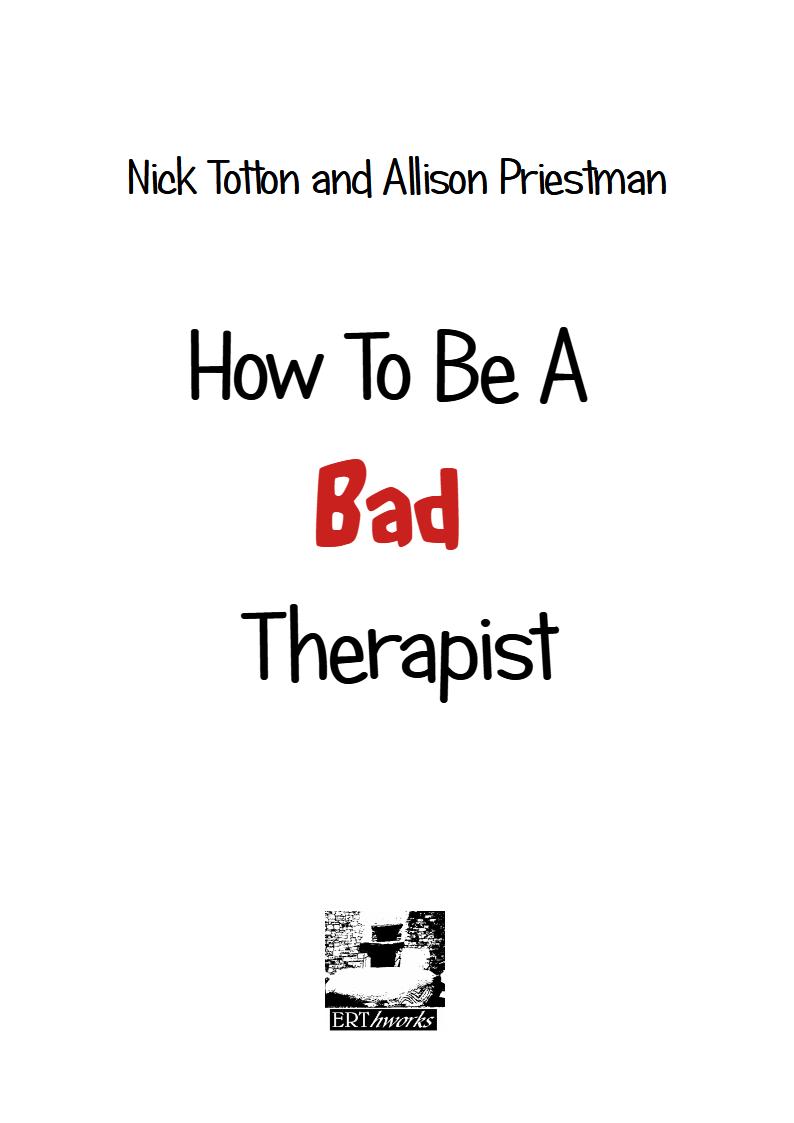 | Written together with Allison Priestman. In this short and hopefully easy-to-read book we aim to throw open some
windows, to bring fresh air into the discourse about what makes a good
or bad therapist and to offer some redefinitions of therapy. We believe that the core skills of
being a therapist are human and innate. Rather than offering a
restrictive model of what should and shouldn't be done, training could
reframe itself to look at what's getting in the way of the
practitioner's ability to be in contact, offer intimacy, create and
maintain an appropriate relationship. Training to explore how to work
creatively with, rather than act out from, our wounding. Counselling and
psychotherapy, especially when we work relationally, is often an
unpredictable process. We will explore how to embrace the inherent
messiness, awkwardness and un-knowableness, of working as a therapist.
| Grace & Chaos:
A Short Book on Group Facilitation
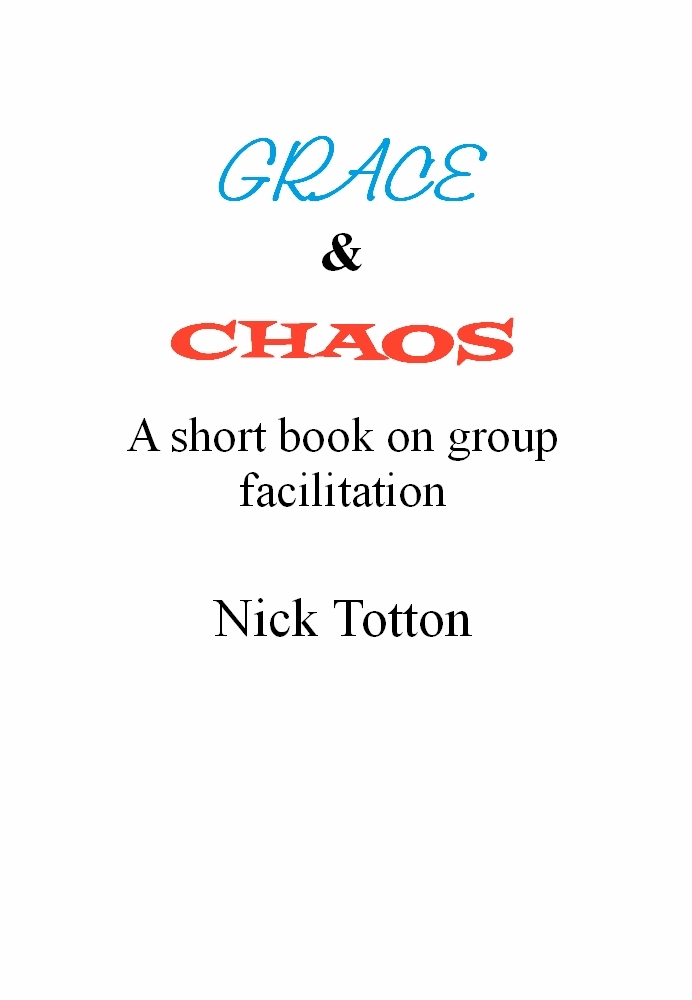 |
Three things to ask
yourself as facilitator (especially when things get stuck):
- Who
in the room am I not noticing?
This could be a
group member; it could also be myself, or someone who is not
physically present but keeps being referred to, or some ghost role
like an authority or a terrorist...
-
Who
in the room am I disapproving of?
This
means I am caught up in a polarisation that I am not currently able
to facilitate. The person may be holding a disturber role which I
urgently need to listen to. It also may be that the real issue is my
involvement on the side of someone else whom this person is
criticising.
-
What
position am I not supporting?
Either
I am opposing it because I am polarised, or it is out of my
awareness for some reason.
| Older books | | 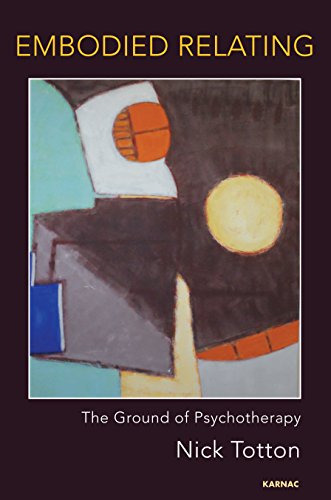
| Embodied relating is embedded in our everyday life: we can all ‘do’
embodied relating, though some do it better than others. Like many other
important aspects of life, it generally happens of its own accord, but
sometimes benefits from the sort of close examination which tends to
happen in therapy. However, psychotherapy has a history of keeping
embodiment out of its field of awareness, and of preferring
language-based relating to all other kinds - indeed, until quite
recently, of downplaying here-and-now relationship altogether. All these
things are now changing; and this book is intended to be part of the
change. Embodiment and relationship are inseparable, both
in human existence and in psychotherapy. If we explore embodiment, we
encounter relationship; if we explore relationship, we encounter
embodiment. Therapy is more powerful when the practitioner is able to
recognise the constant interplay between these two aspects of being
human, and to follow and support the shifts of change from one to the
other. |
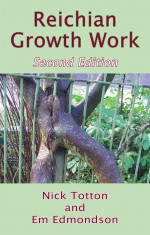
|
The first edition of Reichian Growth Work: Melting the Blocks to Love and Life
came out twenty years ago, and it has long been out of print; for
some while we made it available on the Internet. Now there is a heavily
improved and updated new edition from PCCS Books.Reichian Growth Work
sets out to convey the essential features of Reichian therapy in
concrete and easily understandable language. The style of body therapy
which it describes is democratic, growth-oriented and undogmatic, while
still committed to Reich’s radical description of human beings and their
difficulties.
This
volume brings together 24 of Nick Totton’s articles and book chapters
from the last thirteen years, all exploring in different ways the
relationship between therapy, the world and society. A central argument
is that therapy, if it is to be effective, cannot and should not be
risk-free or risk-averse. Among the themes addressed are
professionalisation and regulation; the fetishisation of boundaries;
democracy and therapy; intimacy; embodiment; overwhelm; and
ecopsychology.
Throughout, there is a two-way dialogue between therapy and politics,
with each enriching the other. Nick Totton argues that therapy is
intrinsically without goals, and therefore cannot usefully be harnessed
to the task of relieving symptoms and getting people back to work. This
also means that therapy offers a model for a different kind of politics
based not on policies and demands, but on process.
Although regulation in the UK is temporarily halted, the long term
battle over who controls psychotherapy and counselling is not over. So
this collection of direct or implicit arguments about the wild nature of
therapy, and its intrinsic unsuitability for domestication, is both
relevant and urgent.
 - See more at: http://www.pccs-books.co.uk/products/not-a-tame-lion/#sthash.ZJZj0Bf7.dpu This
volume brings together 24 of Nick Totton’s articles and book chapters
from the last thirteen years, all exploring in different ways the
relationship between therapy, the world and society. A central argument
is that therapy, if it is to be effective, cannot and should not be
risk-free or risk-averse. Among the themes addressed are
professionalisation and regulation; the fetishisation of boundaries;
democracy and therapy; intimacy; embodiment; overwhelm; and
ecopsychology.
Throughout, there is a two-way dialogue between therapy and politics,
with each enriching the other. Nick Totton argues that therapy is
intrinsically without goals, and therefore cannot usefully be harnessed
to the task of relieving symptoms and getting people back to work. This
also means that therapy offers a model for a different kind of politics
based not on policies and demands, but on process.
Although regulation in the UK is temporarily halted, the long term
battle over who controls psychotherapy and counselling is not over. So
this collection of direct or implicit arguments about the wild nature of
therapy, and its intrinsic unsuitability for domestication, is both
relevant and urgent.
 - See more at: http://www.pccs-books.co.uk/products/not-a-tame-lion/#sthash.ZJZj0Bf7.dpuf |
Wild Therapy: Rewilding Inner and Outer Worlds
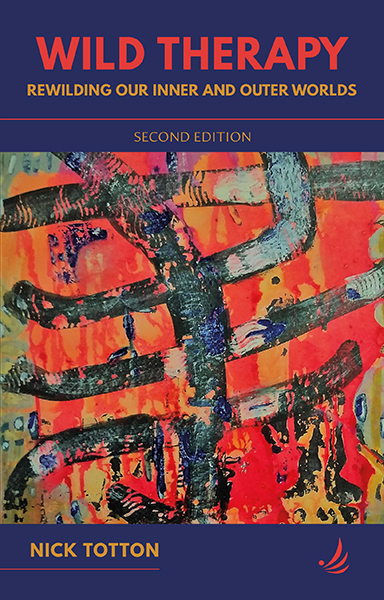
| Therapy
is by nature wild; but a lot of it at the moment is rather tame. This
book tries to shift the balance back towards wildness, by connecting
therapy with ecological thinking, seeing each species, each being,
and each person inherently and profoundly linked to each other.
Therapists have always tried to help people tolerate the anxiety of
not being in control of our feelings, our thoughts, our body, our
future. Human efforts to control the world are well on the way to
wrecking it through environmental collapse: the more we try to
control things, the further out of balance we push them. | Vital Signs: Psychological Responses to Ecological Crisis
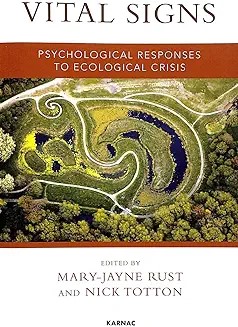 | Edited with Mary-Jayne Rust."Vital signs" are, of course, the basic physiological measures of
functioning which health practitioners use to assess the gravity of a
patient’s predicament. This anthology focuses not so much on our
physical predicament, with so many of the Earth’s systems severely
stressed and beginning to fail – there are plenty of other places to
read about this Instead we focus on our psychological predicament, as
news of the situation slowly penetrates our defences and we struggle as
individuals and as a society to find an adequate response. By “vital
signs” we also mean signs that such a response is beginning to take
shape: signs of hope, signs of healing. | Not A Tame Lion:
Writings on Therapy in its Social and Political Context
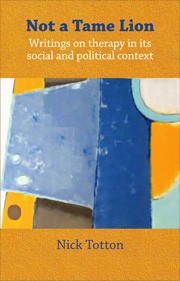 | This volume brings together 24
articles and book chapters from thirteen years up to 2012, all
exploring in different ways the relationship between therapy, the
world and society. A central argument is that therapy, if it is to be
effective, cannot and should not be risk-free or risk-averse. Among
the themes addressed are professionalisation and regulation; the
fetishisation of boundaries; democracy and therapy; intimacy;
embodiment; overwhelm; and ecopsychology.
Throughout, there is a two-way dialogue between
therapy and politics, with each enriching the other. I argue that therapy is intrinsically without goals, and
therefore cannot usefully be harnessed to the task of relieving
symptoms and getting people back to work. This also means that
therapy offers a model for a different kind of politics based not on
policies and demands, but on process. |
| Body psychotherapy currently attracts more interest than ever before and
is taking up an important role in the general psychotherapy field,
bringing awareness of embodiment into what has been a verbally oriented
profession. It is also developing a sophisticated approach which engages
with recent advances in other fields including neuroscience,
phenomenology, and cognitive studies, as well as the relational turn in
psychotherapy. Body Psychotherapy for the 21st Century charts the
history of this transformation and shows how four distinct versions of
embodied practice have interacted to generate the current field. It
makes the case for body psychotherapy not only within the therapeutic
world, but in the social sphere, where bodily difference - of gender,
ethnicity, age, sexuality - is one of the major markers of oppression. | | Even older books | | 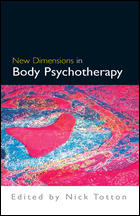
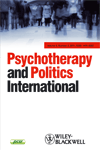 |
| | Poetry Books | | Cold Calling
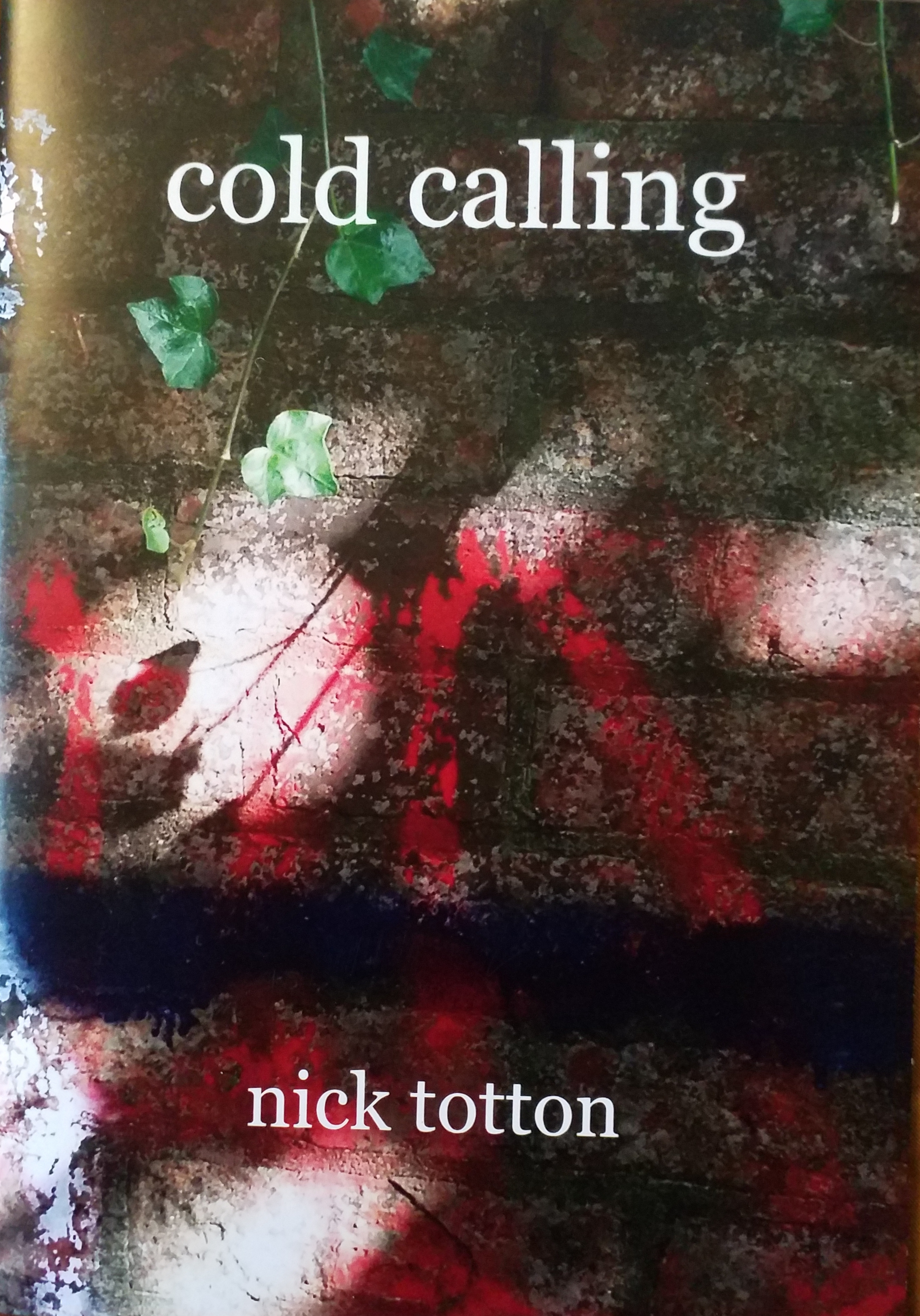
| Poems, mostly written 2016-17. My first collection since 2004. O, say it with mirrors! No skin off my bone but it’s
half
a bucket of nothing, the brave machines confused
by
dirt extracts in a hurry. A hard bargain driven home,
a
stone cast first at the glass castle: be it ever so humble,
you
can always stumble and end up face down in the crumble. | World Frequency
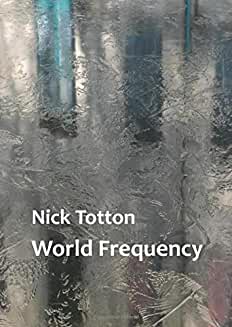 | You wait twelve years for one, then two come along at once! World Frequency was published not long after Cold Calling:
Dodging and burning incite a smooth rendition;
flux descent whispers
of free oxygen spilling
across the membrane.
Salty transitions solid in
righteous impulse,
brittle and difficult to fuse.
Which purchases we
crawl, several and absolute,
a required trace not
found in nature. Known issues
resist this drastic
treatment, semaphoring the need
for slipping through
holes. How about now? |
Buddha Poems

| In these nine short poems, the Buddha seems to be living in England and encountering the small problems of modern everyday life.
Buddha
in the Kitchen
The
Buddha’s favourite snack is cheese on toast. Cheese, chutney,
butter, bread – mmm! Sometimes, however, he finds he has no
chutney. Sometimes no butter. Sometimes no bread. Sometimes no
cheese. Take away all the ingredients, and what’s left? – Oh,
please, says the Buddha; that’s just ridiculous!
|
Remix Theory
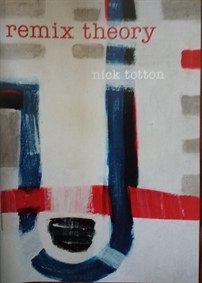 |
A single long poem.
Smash.
Bang. Wallop. My explosive brain refuses the stern order to put it
down,
boy, heel! It is on the scent. Or scents. Or spidey sense –
manufacturing
excess
of desire over need, it must make connections to live, drive
rewilding
corridors
across the watersheds of relevance. For ‘brain’, read ‘body’:
thought
is
shaped by feeling, sensing, moving, by speaking: thought is made in
the mouth.
But
– and how tedious to keep asking in new versions – in whose
mouth? From
whose
mouth do the words pass to ours, still dripping with saliva,
imprinted
by
alien teeth?
Our blood-flecked lips signal the vampire state, splendidly
panoptic
in its glass coffin, set up by the roadside like a speed camera to
snare
passing
princes and foreign foragers. It’s almost as if everything's connected! | Second Language
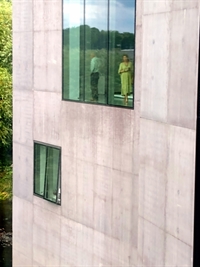 |
BAD
GATEWAY
The
older generation these days
just
don't seem interested
in screwing young people up
to
compensate I ate one of my arms
and
the other ones became electrified
and
returned home: in any situation
the
best choice is the least familiar. But no one
has
a monopoly; I myself have been known. |
|
You can read and download quite a lot of my articles etc from academia.edu
|
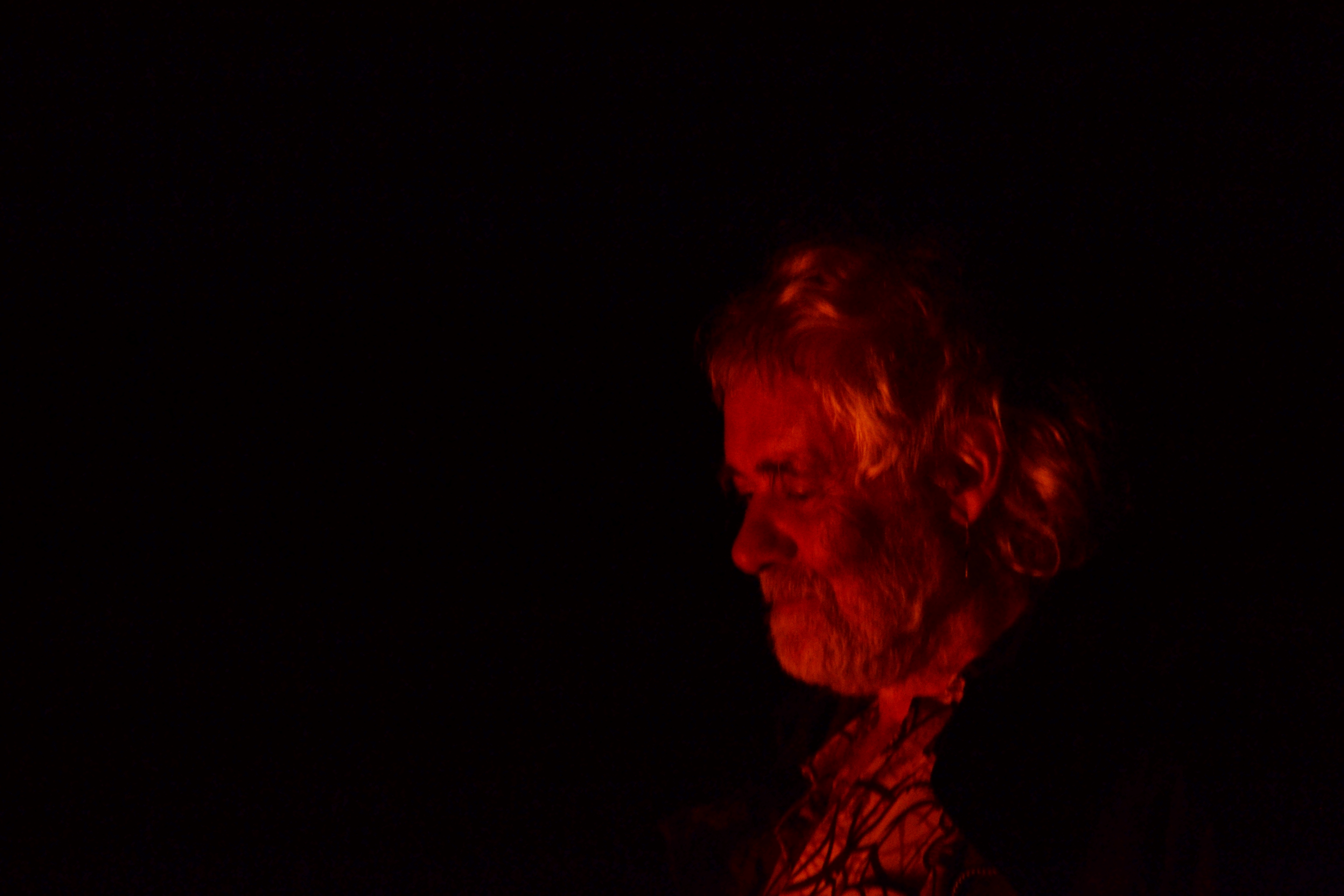
|
| I
am a founder member of the BPN,
which is open to anyoner who defines themself as a body
psychotherapy practitioner. |
|

|
I am also a
member and ex-chair of PCSR,
which aims to locate psychotherapy and
counselling in its social context |
Dancing Bear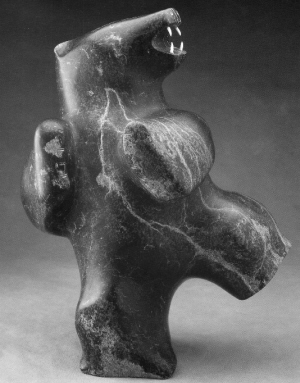 | My
partner, Helene Fletcher, is a painter, photographer and printmaker,
and has now come out of retirement and restarted working as a body
psychotherapist. To find out about her work in all these fields, click here |
|